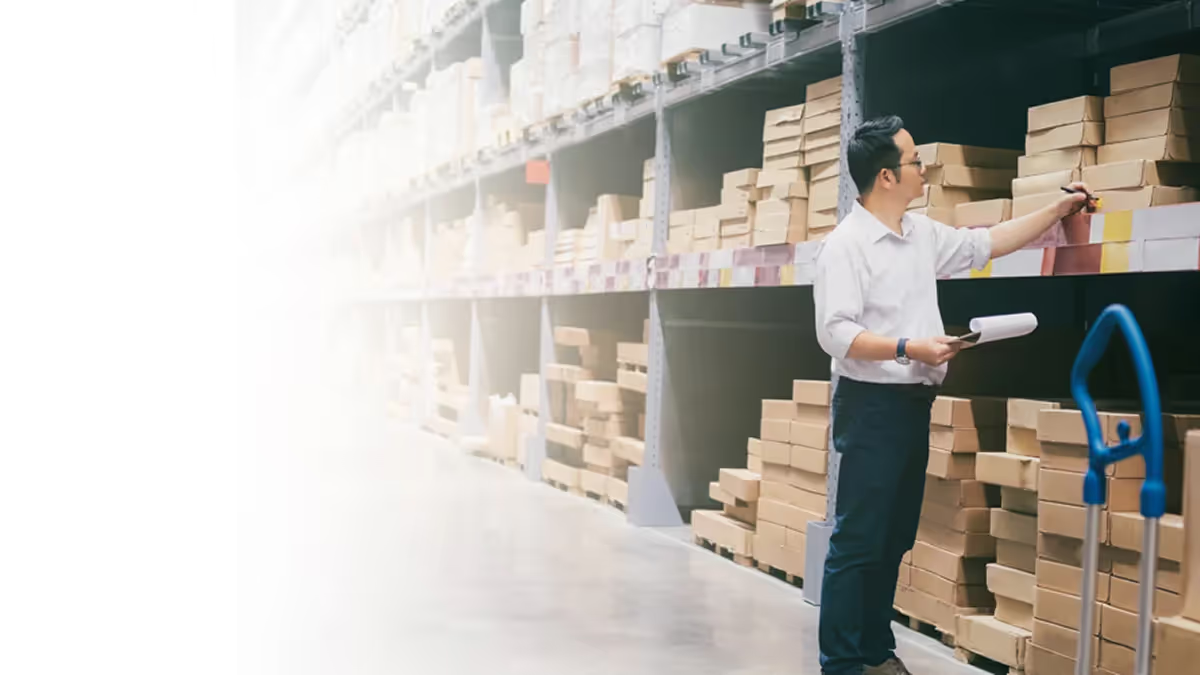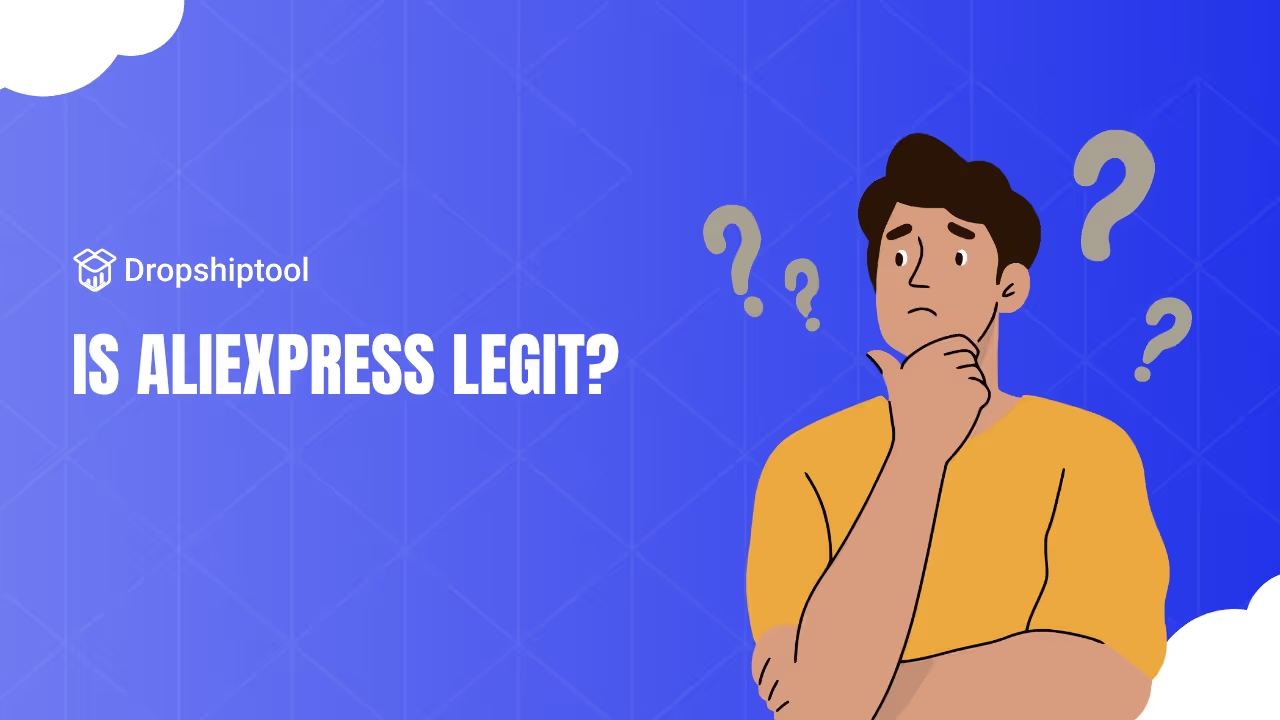If you’ve ever been stumped and don’t know how to start a wholesale business in 2025, you’ve come to the right place. Growing a wholesale business is not magic, it's about having the right strategy. Whether you're sourcing directly from global dropshipping suppliers or manufacturers, you'll need to access the best options for managing your inventory and running your business.

Take some time to research what niches you want to target and who your ideal audience is. This will lay the groundwork for your business. And oh, don't forget a minimal budget. We're just getting started and will spill the details more in our guide.
How a Wholesale Business in 2025 Works?
We can break down the wholesale business model as follows:
- You, the wholesaler, will be the middle man in the supply chain. You will manage the supply of goods from manufacturer to retailer as best as possible.
- Since you get large volumes of stocks, you will get access to lower prices and make great savings.
- You will also be bringing your products to your customers and help retailers access these products through you.
- You can create personalized shopping experiences for your customers and focus on the end user. It's easier than ever to start a wholesale business in 2025 these days.
Types of Wholesale Businesses
There are different types of wholesale businesses which are as follows:
- Manufacturers represent the primary producers who create products from raw materials. You can source directly from these producers, often securing the best prices and having more control over product quality and availability.
- Merchant wholesalers are independent businesses that purchase products in bulk and store them in warehouses. You will work with these intermediaries who take ownership of inventory and distribute to retailers. They handle the logistics of storage and distribution, making them valuable partners for retailers who need consistent supply.
- Brokers and agents operate differently - they never take ownership of products but facilitate transactions between manufacturers and retailers. If you need specialized market knowledge or want to access hard-to-reach suppliers, these professionals can be valuable connections.
- Specialized wholesalers focus on specific product categories or industries. You might find these particularly useful if you need expertise in niche markets like medical equipment, electronics, or automotive parts.
- Dropship wholesalers handle fulfillment without maintaining inventory. When you partner with these wholesalers, they ship products directly to your customers, reducing your storage and handling costs.
- Export/Import wholesalers facilitate international trade. If you need products from overseas markets or want to expand globally, these specialists handle the complexities of international commerce.
What Wholesale Items Can You Sell?
Here are some items you can sell in different niches:
- Educational materials: It has a massive market with over 55 million students in the United States alone. You can wholesale arts and crafts supplies, writing utensils, notebooks, computers, calculators, backpacks, textbooks, and educational software. The consistent demand from schools and educational institutions makes this a stable wholesale opportunity.
- Home décor: It continues to show strong growth, with the global home improvement market expected to exceed $1 trillion by 2034. You can profit from wholesaling wall art, candles, furniture, storage solutions, bedding, and lighting. The trend toward home improvement and remote work setups has sustained demand in this category.
- Clothing and accessories: They offer tremendous opportunities in a market approaching $2 trillion by 2025. You can wholesale everything from baby and children's clothing to formal wear, activewear, jewelry, and shoes. The fashion industry's constant evolution creates ongoing opportunities for wholesale suppliers.
- Food and beverage products: These provide reliable wholesale opportunities due to consistent consumer demand. You can wholesale beverages, dairy products, frozen foods, fresh produce, snacks, and specialty items like organic or keto products. The essential nature of food ensures steady market demand.
- Kitchen materials: Kitchenware generates over $16 billion in global revenue annually. You can wholesale utensils, cookware, appliances, storage containers, and kitchen organization solutions. The growing interest in home cooking and kitchen upgrades drives continued demand.
- Health and wellness products: These are positioned in an industry set to reach nearly $9 trillion by 2028. You can wholesale vitamins, supplements, skincare products, fitness equipment, essential oils, and wellness accessories. Consumer focus on health and self-care sustains growth in this sector.
- Pet supplies: Pet owners spend over $2,524 annually on their pets. You can wholesale pet food, toys, grooming supplies, healthcare products, bedding, and accessories. The consistent love people have for their pets makes this a resilient wholesale market.
How Much Money Can a Wholesale Business in 2025 Make?
Your earning potential in wholesale business can be substantial, with real-world data showing average annual revenues of $1.42 million. You should understand that profit margins typically range from 15% to 50%, depending on your product category and business model. Here is how much money you can make with a wholesale business in 2025:
- Weekly revenue for established wholesale businesses averages around $29,600, translating to approximately $118,000 in monthly revenue. However, you will find significant variation based on your niche, customer base, and operational efficiency.
- Profit margins in wholesale generally hover around 30%. You can expect to recover your initial investment within 24 months if you maintain consistent operations and growth. The key to profitability lies in bulk purchasing at discounted rates and selling to retailers at higher prices while maintaining competitive margins.
- Owner earnings vary considerably based on location, business size, and market competition. You might see weekly earnings around $8,880 for a well-established wholesale business, though this can fluctuate by as much as 80% depending on various factors.
- Startup costs for wholesale businesses typically range from $50,000 to $500,000 or more. You will need to budget for inventory, warehouse space, licensing, technology systems, and working capital. Electronics wholesale businesses often require higher upfront investment, while basic consumer goods can start at the lower end of this range.
How to Start Building a Wholesale Business in 2025
Start by conducting thorough market research to identify profitable niches and understand your target customers' needs. Here is what you need to do to build a wholesale business in 2025:
- Choose your niche carefully by analyzing market demand, competition, and profit potential. You should focus on products you understand well and can source reliably. Research which retailers need your products and what problems you can solve for them.
- Register your business properly by obtaining necessary licenses and permits. You will need a GST registration, trade license, and wholesale distributor license. The legal registration process typically costs between $3,000 to $10,000, with wholesale licenses averaging around $6,500.
- Secure adequate funding for your startup costs. You will need capital for initial inventory ($10,000 to $100,000 depending on your niche), warehouse space ($500 to $5,000+ monthly), and technology systems ($2,000 to $10,000 for basic website and ordering systems).
- Build supplier relationships by connecting with manufacturers and establishing reliable supply chains. You should negotiate favorable terms, minimum order quantities, and payment arrangements that support your business model. You can do competitor research by using Dropshiptool.
- Set up your operations including warehouse space, inventory management systems, and fulfillment processes. You will need efficient systems to track inventory, process orders, and manage customer relationships.
- Develop your pricing strategy by calculating all costs and adding appropriate margins. You should aim for 30-50% markup over costs while remaining competitive in your market.
- Create your sales and marketing plan to reach potential retail customers. You will need professional marketing materials, a strong online presence, and strategies to connect with buyers in your target markets.
Tools You Need to Create and Grow Your Wholesale Business
You will need various tools to operate and scale your wholesale business successfully and here they are:
- Enterprise Resource Planning (ERP) software serves as the backbone of your operations. You should invest in systems that handle inventory management, order processing, financial tracking, and customer relationship management. ERP solutions provide real-time visibility across all business operations.
- Inventory management systems are essential for tracking stock levels, managing reorders, and preventing stockouts. You can implement wireless barcode scanning, lot tracking, and automated reorder points to maintain optimal inventory levels.
- Customer relationship management (CRM) software helps you manage buyer relationships, track sales interactions, and identify growth opportunities. You should choose systems that integrate with your inventory and order management platforms.
- E-commerce platforms enable online ordering and customer self-service. You will need wholesale-specific features like tiered pricing, minimum order quantities, and bulk order management capabilities.
- Warehouse management systems optimize storage, picking, and shipping operations. You can implement automated tracking, mobile scanning, and route optimization to improve fulfillment efficiency.
- Financial management software handles accounting, invoicing, and payment processing. You should ensure integration with your inventory and sales systems for accurate financial reporting.
- Mobile apps allow field sales representatives to access product information, check inventory, and place orders remotely. You can provide customers with mobile ordering capabilities for added convenience.
- Data analytics tools help you understand sales trends, customer behavior, and market opportunities. You should implement systems that provide actionable insights for strategic decision-making.
- Cloud technology ensures remote access to critical business data and enables scalable operations. You can manage multiple locations and support remote work with cloud-based systems.
- Also, be sure to check out our top luxury dropshipping suppliers to find options for high-ticken items for your wholesale business.
How to Promote Your Wholesale Store Online
Here are some great ways you can promote your wholesale business in 2025:
- Search engine optimization helps potential customers find your business online. You should optimize your website for relevant keywords, create valuable content, and build authoritative backlinks to improve your search rankings.
- You can create engaging content on LinkedIn, Facebook, and Instagram to build brand awareness and generate leads.
- Email nurtures relationships. Send newsletters highlighting new and trending products, special promotions, and industry insights to keep your brand top-of-mind.
- Pay-per-click advertising targets retailers actively searching for wholesale suppliers. You can run Google Ads and social media campaigns to capture high-intent traffic and generate qualified leads.
- Content marketing positions your business as an industry expert. You should create valuable guides, market insights, and product information that helps retailers make informed purchasing decisions.
- Trade show participation provides face-to-face networking opportunities. You can showcase products, meet potential customers, and build relationships at industry events.
- B2B marketplace listings increase your visibility to wholesale buyers. You should list your products on platforms like Faire, Alibaba, and industry-specific directories where retailers search for suppliers.
- Referral programs leverage satisfied customers to generate new business. You can offer incentives to existing customers who refer new wholesale accounts to your business.
- WhatsApp marketing enables direct communication with prospects and customers. You can use WhatsApp Business to share catalogs, process orders, and provide customer support.
- Retargeting campaigns re-engage website visitors who didn't convert initially. You can show targeted ads to prospects across various digital channels to stay top-of-mind during their decision making process.
Conclusion
Running a wholesale business in 2025 and starting it up may not be easy, but it’s very doable if you know what you’re doing. And we’ve told you how to do it right. Follow our roadmap, put in the world, and watch the blueprint convert your goals into action. Good luck setting up your store. Fill it with the right products, engage with customers, and you’ll be getting great business pretty soon! We believe in you. ;)





















